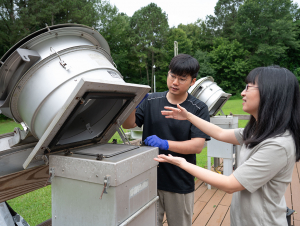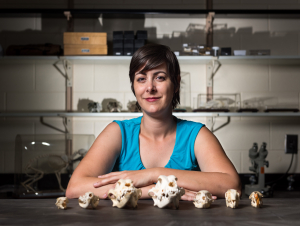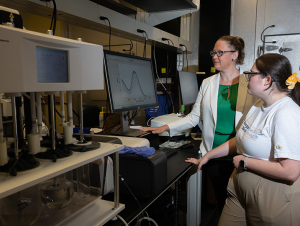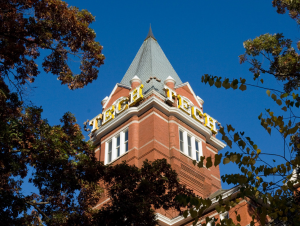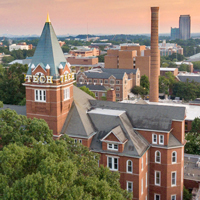Latest News
Both Anthony Diaz and Melissa Nord have EAS degrees, but they pursued divergent professional trajectories — one crafting on-air weather forecasts and the other forecasting strategic shifts in the corporate world.
Wildfires have spread across the planet for millennia, but they are increasing as the climate warms. Decimated forests, depleted crops, and destroyed buildings are the hallmark of wildfire devastation. Another is the effect on air quality and even the entire climate system. Researchers at Georgia Tech offer solutions for not only surviving — but also benefiting from — fire.
Jenny McGuire has been named a Teasley Professor, advancing Georgia Tech’s leadership in biodiversity research and climate resilience.
The dashboards highlight significant achievements in joint research, funding, and innovation, demonstrating each partnership’s commitment to addressing critical global challenges.
Snigdaa Sethuram (Ph.D. PHYS 2025) recently joined the Argonne Leadership Computing Facility as a Margaret Butler Fellow in Computational Science.
By uniting experts across disciplines, Georgia Tech is positioning itself at the forefront of neuroscience and space research.



